We the Probable
Oddly, both sides share a common — and I think wrong — assumption. Both say that the advent of a brainy, self-aware biped such as Homo sapiens was highly improbable.
The orthodox Darwinists say a creature such as ourselves is so improbable that turning back the hands of time and re-running the whole evolutionary "experiment" from its very start would yield nothing comparable to us, ever again. However vastly improbable the debut of human organisms actually was, evolution by natural selection was able to accomplish it, it is quite true — but only just this once.
That it could do so at all, Darwinian orthodoxy says, is testimony to the power of accumulated hereditary change as it chalks up one biological novelty after another over an inconceivably large number of generations.
In other words: we are very, very improbable. We must in fact be very, very accidental.
I.D.ers modify that outlook crucially to say, in effect, that we are so very improbable that an intelligent designer, standing on a high supernatural plane which science is ordinarily blind to, must have called us forth. Indeed, everything in biology whose complexity is so great as to make it otherwise hugely improbable must have been designed from above.
Notice how both competing outooks assume that evolutionary history has no intrinsic directionality. If it did — if it involved an impetus to maximize biological complexity, say — then we'd be not accidental byproducts of natural selection or signs of supernatural design, but close to inevitable fruits of natural laws. For if our intelligence and self-awareness are functions of our sheer complexity, and if there are natural laws that promote the buildup of complexity over the vastness of evolutionary time, then sooner or later an intelligent, self-aware species is (almost) bound to appear.

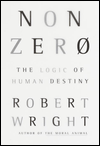 That's what Robert Wright says in his book Nonzero: The Logic of Human Destiny, and it's also what Stuart Kauffman says in At Home in the Universe: The Search for Laws of Self-Organization and Complexity.
That's what Robert Wright says in his book Nonzero: The Logic of Human Destiny, and it's also what Stuart Kauffman says in At Home in the Universe: The Search for Laws of Self-Organization and Complexity.Wright shows that biological evolution, as well as human cultural evolution, is not just a search for Darwinian fitness, which is what natural selection maximizes. It's also a search for ever-increasing biological and societal complexity, which could be defined as an ability to turn "non-zero-sumness" into positive gains.
"Non-zero-sumness" is a potential for cooperative synergism. Synergism is what the Merriam-Webster Online Dictionary defines as "interaction of discrete agencies (as industrial firms), agents (as drugs), or conditions such that the total effect is greater than the sum of the individual effects." Synergism is the word I use in place of Wright's "non-zero-sum benefits," which are not exactly the same as non-zero-sumness per se. Another word would be "mutualism."
Non-zero-sumness is a potential for mutualism, not the actualization of that potential. A "non-zero-sum game" is is one in which all participants can gain (or lose) from the outcome. That contrasts with a "zero-sum game," in which each gain by one player is matched by an equal loss on the part of one or more other players.
Non-zero-sum games, the sources of non-zero-sumness, are often in turn potentiated, in the human context, by advances in technology. Wright gives the example of the invention by the Shoshone Indians of a large rabbit net that needed several families' combined efforts to be put to use. The Shoshones had no social organization higher than the family, but the advent of the net spurred them to develop a more complex organization, at least for the duration of the hunt. That increase in social complexity turned the potential — the non-zero-sumness — offered by the new technology into actual synergism with tangible gains.
Thus, complexity actualizes non-zero-sumness. You have to have both. In human terms, the non-zero-sumness arrives with innovations such as rabbit nets. Then the additional social complexity which can take advantage of that non-zero-sumness emerges apace.
The same thing happened, says Wright, in biological evolution leading up to us. The innovations were the accidental results of genetic mutations, not mental activity, but they ushered in new non-zero-sum potential. Then the potential gains were actualized by increases in biological complexity: more elaborate and fruitful cooperative interactions at, say, the level of an ecosystem.
Kauffman's contribution to this is to show why — why in a scientific sense, not in a cosmic sense — the heightened complexity which is needed to take advantage of the new non-zero-sumness made available by some innovation is always in adequate supply. Nonequilbrium systems — any and every living thing is a nonequilibrium system, importing food and energy and exporting waste and heat — produce complexity, or "order for free," naturally and lawfully.
As they do so, they naturally form not just populations but yet larger systems such as ecosystems. In ecosystems, there are a diversity of individual species, each co-adapting with the others in an evolutionary dance in which each species "tries," metaphorically speaking, to climb the peaks on its own "fitness landscape."
That's what biologists call the process of "coevolution," and it fosters yet more order for free. Then, in the "evolution of coevolution," over the longest imaginable time frames, ecosystems gravitate away from chaos and also away from sterile, frozen order, toward a conceptual locale called the "edge of chaos." In the orderly regime just to one side of this "phase transition," the edge of chaos, they produce the most order for free, resulting in the greatest possible increases in complexity.
If complexity is defined as the ability to turn non-zero-sumness, which starts out as a mere potential for cooperative advantage, into actual positive gains, thereby improving life on earth, Kauffman and Wright are singing from the same hymnbook. Non-zero-sumness and its eventual actualization provide biohistory and cultural history with an intrinsic directional arrow toward increasing organizational complexity, says Wright. Says Kauffman, the increased organizational complexity which is going to be needed to tap new non-zero-sum potentials as they arise will always be there, thanks to natural laws of "self-organization" such as the one which draws ecosystems to the fecund edge of chaos.
I take all this as representing a sign from God: God works his will through earthly evolution and the laws of nature.
I see it as God's will for us that we become not the beasts we once were, evolutionarily speaking, but the fully human persons we are meant to be. As we as a species have become biologically and culturally more complex, we in turn have learned to play non-zero-sum games better and better — and, thanks to us, nature on this planet is no longer so red in tooth and claw. We have already overcome some of the beast in us, and as time goes on, we can expect to improve on that.
We now begin to descry on the horizon, says Wright, "the prospect of building the infrastructure for a planetary first: enduring global concord." The peace which surpasses all understanding can come to earth at last. "It may literally be within the power of our species to swing nature's moral scales — which for so long tended to equilibrate near dead even at best — decisively in the direction of good; maybe it is up to us, having inherited only the most ambiguous evidence of divinity, to construct clearer evidence in the future. Maybe history is, as various thinkers have suggested, not so much the product of divinity as the realization of divinity ... " (p. 332).
My outlook differs from that of intelligent design. I.D.ers such as William Dembski assert, I think wrongly, that natural law cannot be responsible for generating great complexity. To them, the complexity which distinguishes our being comes directly from God's intentional "design," unmediated by chance and law.
To me, the signature complexity which tilts us toward being persons and not beasts and gives porpose and meaning to evolution comes about through the operation of chance and law in the natural world. Yes, it's a sign from God, but no, it's not the kind of sign Dembski and other I.D.ers say it is.
Rather, it's the kind of divine sign which begins to make good sense once we start thinking of our species as not accidental or highly improbable but, rather, very, very probable.






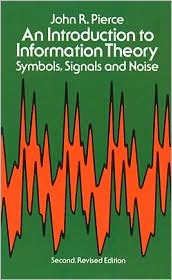

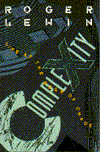


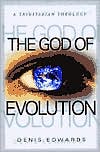

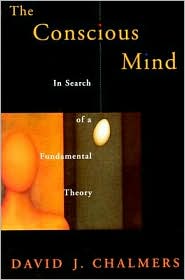
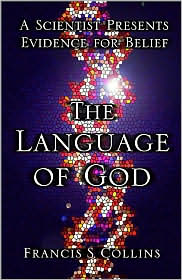


0 Comments:
Post a Comment
<< Home